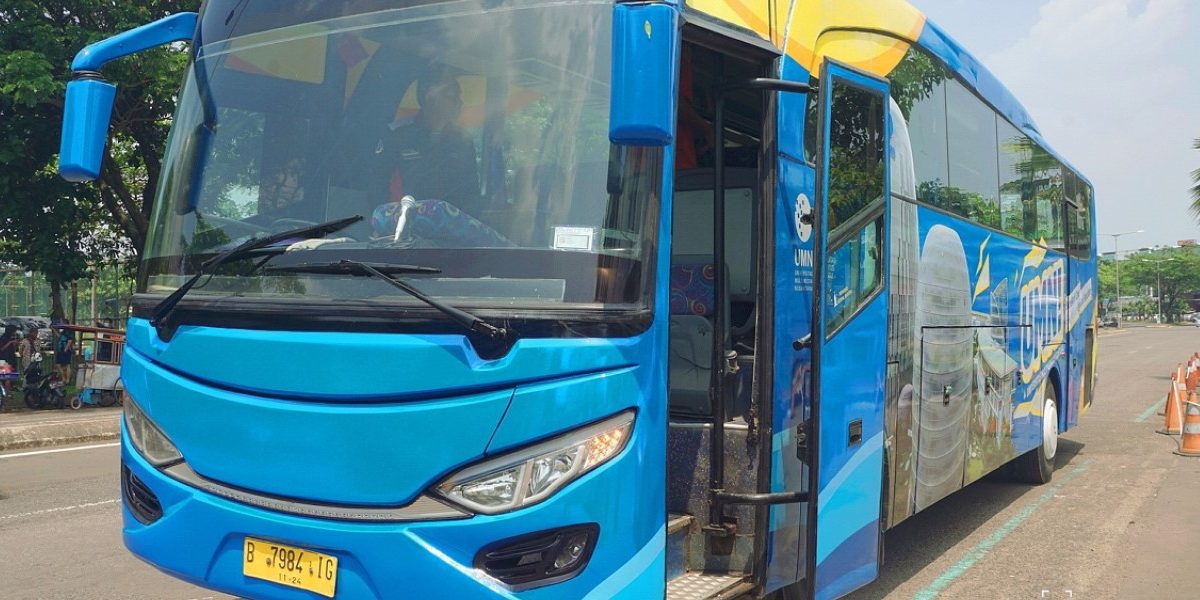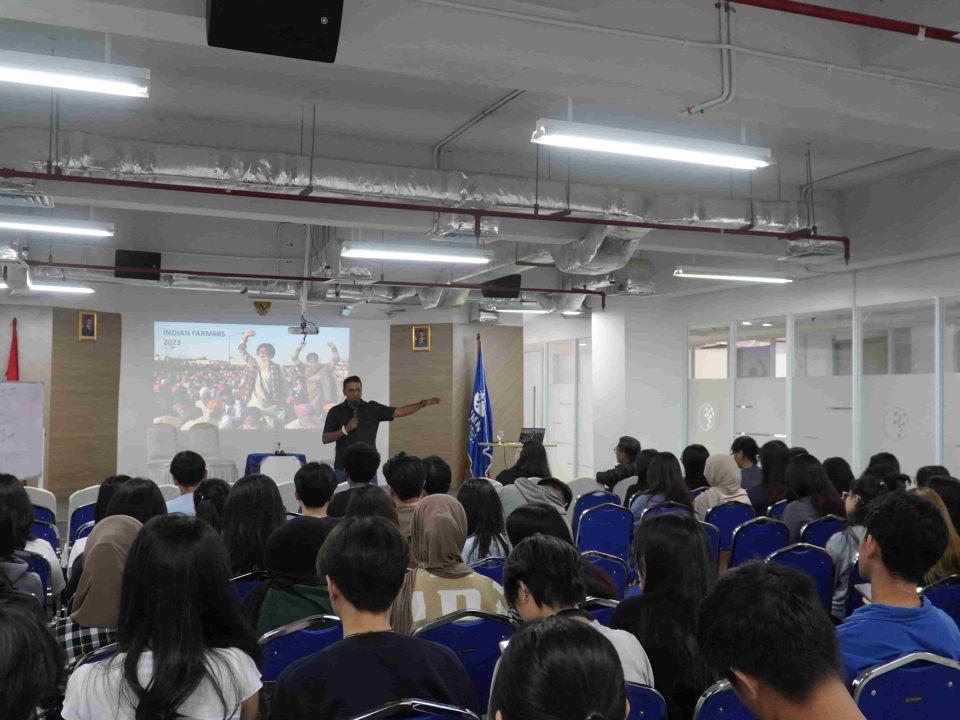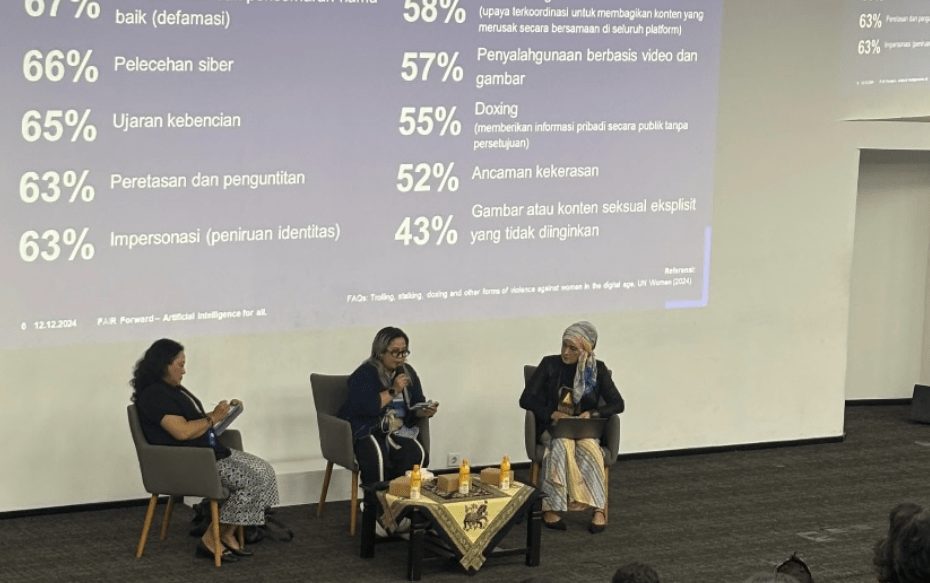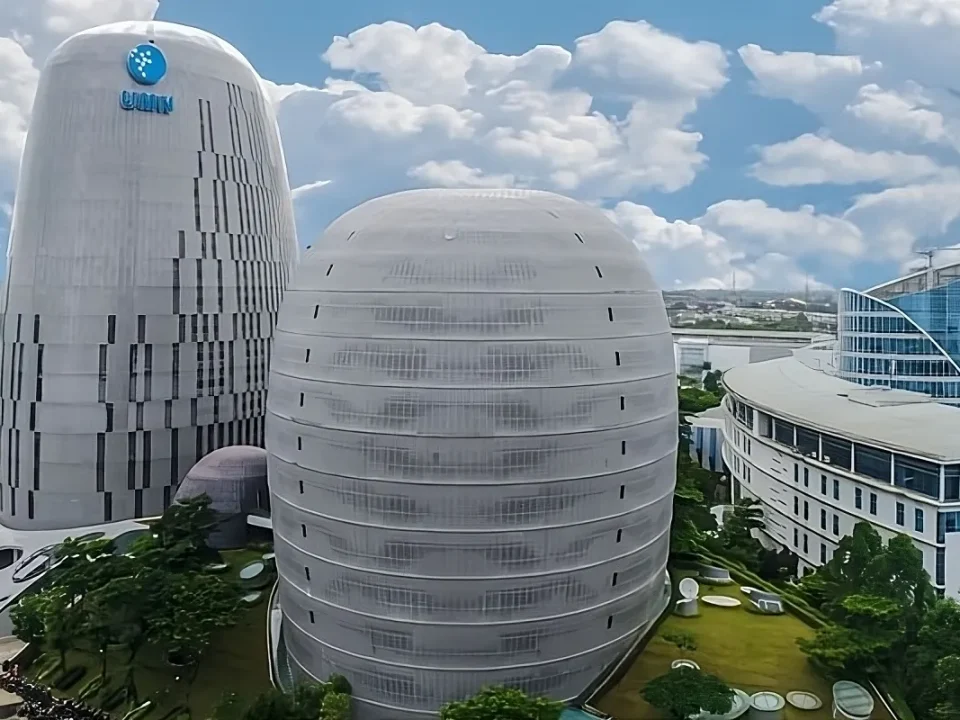
INDONESIAN CHEF ASSOCIATION CELEBRATES ITS 16TH ANNIVERSARY WITH UMN
September 18, 2023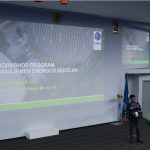
Workshops of Energy Efficiency for Tangerang Community
September 20, 2023
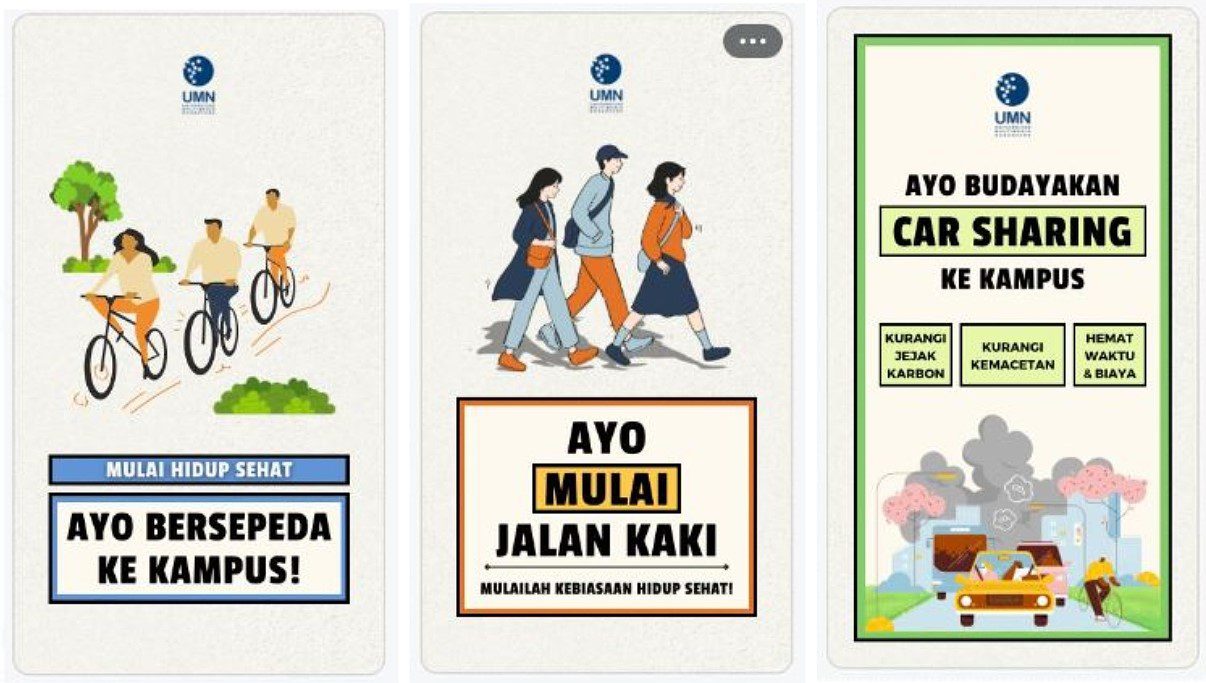
Initiatives to reduce emission, such as cycling, walking and car-sharing program (Doc. UMN)
Tangerang – Universitas Mulltimedia Nusantara (UMN) is committed to implementing sustainable practices to reduce its carbon dioxide emissions and manage its carbon footprint. One of the key strategies is encouraging eco-friendly transportation options for its students and staff. UMN promotes cycling and walking to campus, which not only helps in reducing carbon emissions but also fosters a healthy lifestyle. In addition, UMN encourages car-sharing among students and employees, minimizing the number of private vehicles on the road and thus reducing overall carbon emissions from campus commutes.
To further strengthen its sustainability efforts, UMN has established a dedicated team to monitor carbon emissions on campus. This team is responsible for collecting data, preparing detailed reports, and implementing various initiatives and innovations aimed at reducing emissions across the university. Through these efforts, UMN is actively working toward a greener campus environment.
In its ongoing efforts to reduce the number of private vehicles on campus, UMN provides a free shuttle bus service with strategically placed pick-up and drop-off points throughout Tangerang. This convenient service is designed to accommodate more students and encourage them to opt for this shared, eco-friendly transportation alternative over personal cars. By offering easy and reliable access, UMN aims to reduce traffic congestion, lower carbon emissions, and promote sustainable commuting habits among students and staff.
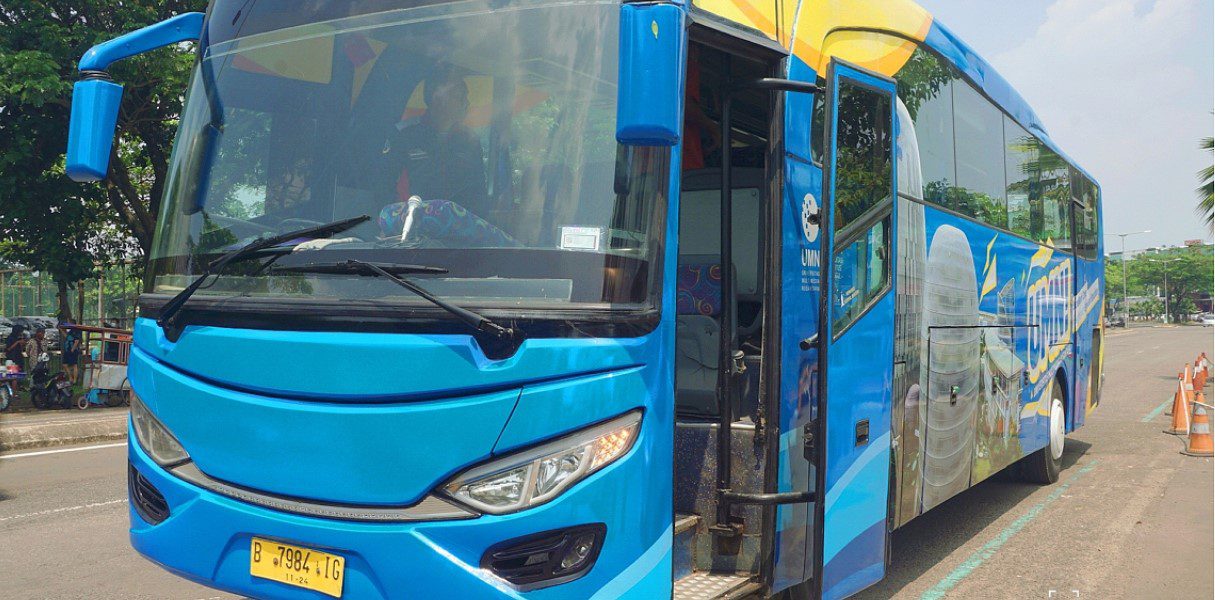
UMN Bus Service for Students and Staff (Doc. UMN)
Additionally, UMN encourages students to make use of the JA&JR Connexion and Summarecon bus networks, which cover an even wider area. These options further ease the commute to campus, supporting UMN’s goal of fostering a cleaner, greener transportation culture.
Besides reducing the number of vehicles on campus, UMN has also taken a significant step toward sustainable energy by transitioning to more eco-friendly electricity sources. This includes the installation of 372 solar panels, which are anticipated to contribute up to 15% of the university’s total electricity consumption.
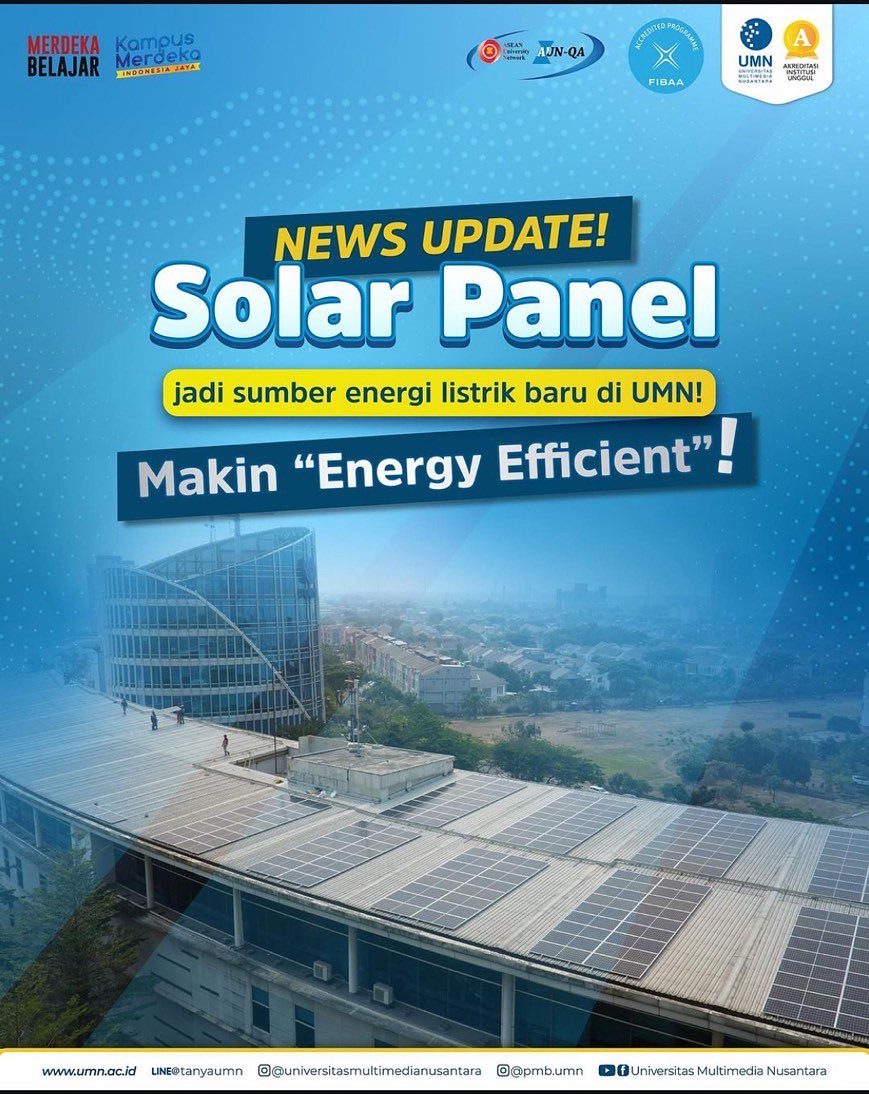
Announcement of Solar Panel Installation (Doc. UMN)
UMN also dedicates itself to reducing carbon emissions by preserving and expanding its green spaces. Located within the bustling Jakarta metropolitan area, UMN’s campus features over 3,054 trees that act as natural air purifiers. These green spaces are a vital part of the university’s environmental strategy, absorbing carbon dioxide from the atmosphere and producing oxygen, creating an oasis that benefits both the campus community and the surrounding environment.

UMN Green Area (Doc. UMN)
In addition to reducing emissions through tree planting, UMN actively maintains these green areas to ensure their long-term health and effectiveness in carbon sequestration. By focusing on sustainable landscaping and planting more trees, UMN’s efforts contribute to cleaner air and an overall reduction in its carbon footprint. The campus greenery serves as a daily reminder of the university’s commitment to environmental responsibility, helping to foster a culture of sustainability among students, faculty, and staff.
Team Public Relations | UMN News Service
Kuliah di Jakarta untuk jurusan program studi Informatika| Sistem Informasi | Teknik Komputer | Teknik Elektro | Teknik Fisika | Akuntansi | Manajemen| Komunikasi Strategis | Jurnalistik | Desain Komunikasi Visual | Film dan Animasi | Arsitektur | D3 Perhotelan , di Universitas Multimedia Nusantara. www.umn.ac.id

